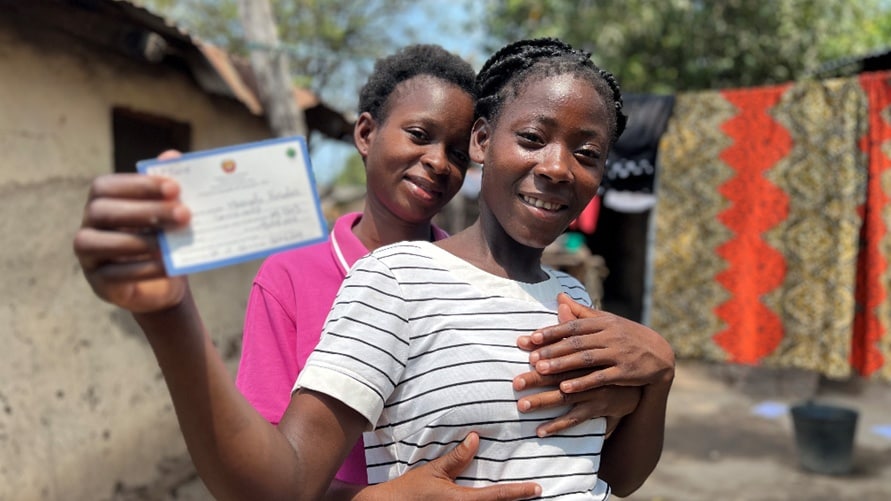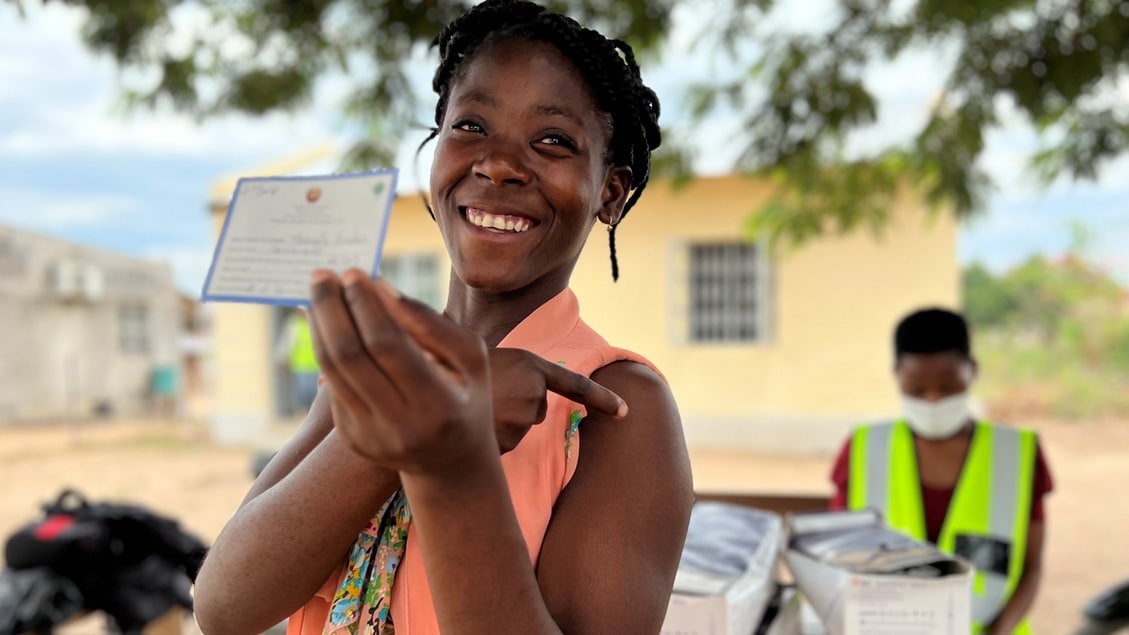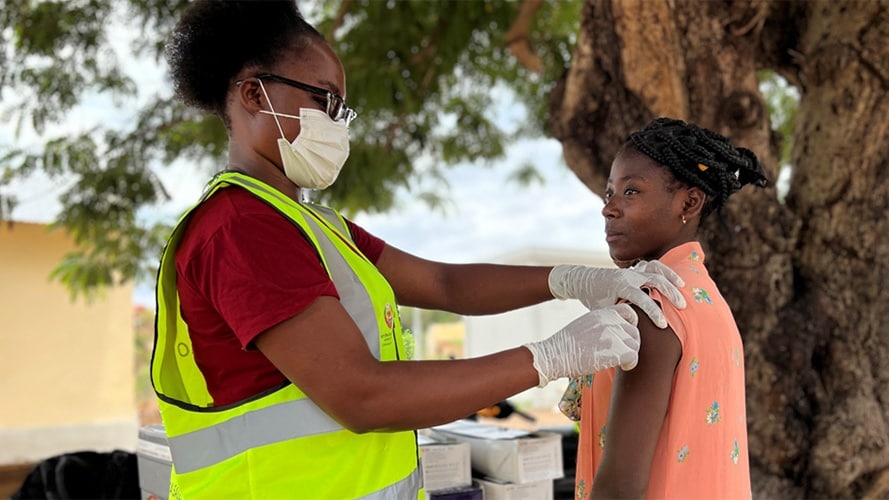Key points
Health officials work with U.S. CDC-supported partner organization Friends in Global Health (FGH) to get teens in Mozambique vaccinated against COVID-19. Communication materials in several local languages helped many understand why it's important to get the vaccine. The U.S. CDC-supported vaccination campaign resulted in over 901K teens getting their first shot of COVID-19 vaccines.

Background
U.S. CDC has partnered with the MOH and National Institute of Health (INS) for 23 years. Together they work to establish and strengthen laboratory networks, disease surveillance, and increase the workforce available to respond to disease outbreaks.
The first case of COVID-19 was confirmed in Mozambique in March 2020. U.S. CDC, MOH, and INS quickly developed an overall strategy, operational plan, and budget for Mozambique's COVID-19 response. Partnerships built over time were invaluable to Mozambique's COVID-19 response.
With support from the U.S. Government Global VAX initiative through U.S. CDC, Friends in Global Health (FGH) coordinated Mozambique's vaccination efforts. This included a campaign to reach teens.
Marcela's story

Marcela Eusébio Antonio is a 17-year-old living in the rural district of Mopeia in the Zambézia Province in Mozambique. Marcela got her second dose of the COVID-19 vaccine through a Ministry of Health (MOH) mobile vaccination brigade. She decided to get vaccinated after learning the COVID-19 vaccine was safe and debunking myths.
Separating fact from fiction
U.S. CDC Mozambique worked closely with partners such as FGH to support the vaccination campaign. With strong, longstanding relationships in local communities, the campaign led many Mozambicans to be protected against serious COVID-19 illness.
Health officials created general information, education, and communication materials like posters and flyers that were used throughout the country. They even created theater productions as a way to inform people about the benefits of getting the COVID-19 vaccine.
In the Zambézia Province on the central coast of Mozambique, FGH provided logistical support to provincial health authorities. They brought community members, religious and political leaders, and other influencers together to participate in radio and television spots and debates. These efforts helped explain why people should get vaccinated. They also addressed COVID-19 misinformation that was circulating and preventing many from getting the shot.
Coordination between the education and health sectors was also essential. This helped ensure that teachers were trained by health professionals so they could provide correct COVID-19 vaccination information.
Results

Neusa Francisco Rainde, Marcela's older sister and guardian, was glad when young people were eligible to get the COVID-19 vaccine. She was very worried that teenagers like her younger sister were still unprotected.
According to provincial health authorities in Zambézia, the campaign resulted in over 901,000 teens getting their primary series of COVID-19 vaccines. That's 99.8% of the eligible population. These efforts put Mozambique one step closer to achieving the goal of getting nearly 5 million 12- to 17-year-olds vaccinated.
So many young people are now up to date with their primary COVID-19 vaccinations. Thus, health officials in Mozambique are shifting their focus on getting them booster shots so they continue to be protected.
